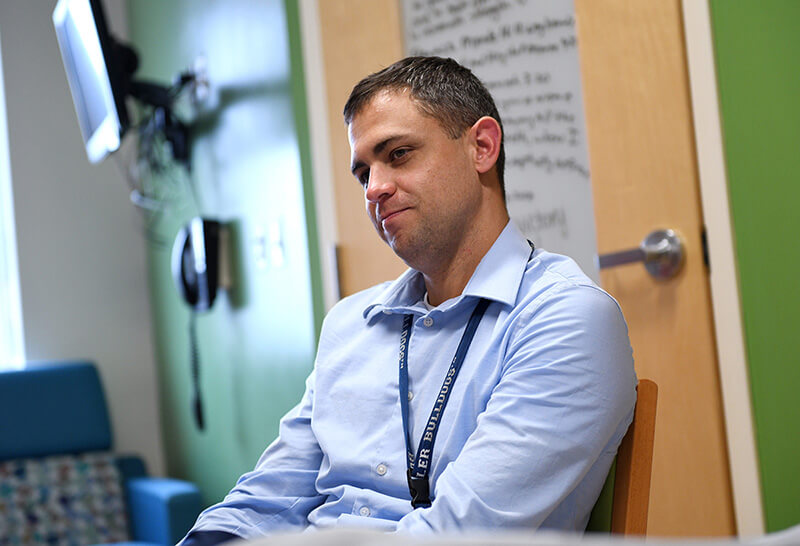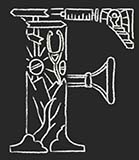 or Adam B. Hill, the way forward was first revealed on a basketball court. It came with a broken leg.
or Adam B. Hill, the way forward was first revealed on a basketball court. It came with a broken leg.
It was the mid-2000s and Hill was a student at the Indiana University School of Medicine. On the court of life, he’d reached a point where he felt no shot he made could ever find the hoop.
The workload, pressure, and demands of med school were overtaking him. He felt alone. Everywhere Hill looked he saw defeat. Suffering from depression, he had reached the same place around one in every three fellow med students around the world will find themselves in.
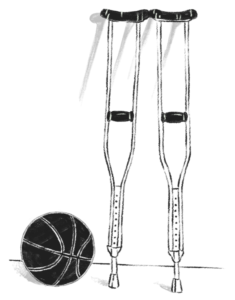
With his leg in a cast, people could see there was something physically wrong with Hill. In his injury’s pain and recovery, it also gave him much more: the space he needed to share how much he was struggling mentally had been created.
“It felt okay to say ‘oh yeah, I’m actually struggling with my mental health,” Hill told me. “It was almost a convenient excuse.”
Though his journey would make many more twists and turns—including a difficult battle with alcohol abuse and moments where suicide seemed like the only answer—Hill has since made his long walk out of the woods.
Now the division chief of pediatric palliative care at Indianapolis’ Riley Hospital for Children, he has written about his personal experience and has become a vocal advocate for mental health in medicine on Twitter. In 2019, he was named a National Mental Health Champion award winner.
The assistance and support of family, friends, and mental health professionals, have featured prominently in Hill’s journey. Talking about it has too, and continues to be. Despite the weight of the subject and the places it took him personally, our conversation felt illuminating and urgent.
While some schools and organizations are changing the way they talk about mental health, most of the important work remains to be done. From training to practice, depression, substance abuse, and burnout stalk the medical profession at rates way higher than others.
Though institutional change will take time, Hill has a simple message for med students who are struggling. Reach out, he says. Know that doctors aren’t superhumans and that lessons learned during your ‘walk through the woods’ will make you a better, more empathic physician.
“We now have this expectation where medicine isn’t a job or even a career, but that you should dedicate your life to it,” he says.
“… we call people ‘superheroes’ and ‘superhuman’ and all these narratives—potentially out of good intentions in time of a pandemic—but it then just sits with a level of guilt and is internalized in a way where it’s like ‘I really need to give everything I have’ and anyone who stops short of that, like myself, who deeply values home life, family, [and] my work-life balance, there’s almost this pressure that you’re not achieving everything that you could be achieving.”
When something is wrong
The high workloads, intense scrutiny, and constant pressure of medical school create the perfect environment for mental health issues to flourish. Add in the crippling rates of med student loan debt—now around $251,000 in the United States, a figure that has nearly doubled over the last two decades—and the high stakes human reality of a career in medicine, and you have a powderkeg situation.
Residency and future practice don’t see things change much either. Symptoms of depression increase 15.8% during the first year of residency, with up to 45% of all residents reporting depressive symptoms while training. A 2019 study showed that rates of both suicide and depression were higher amongst doctors than the general public. While suicide rates for male doctors were up to 40% higher than the general population, female doctors’ rates were up to a shocking 130% higher.
This isn’t just an American problem, either. Up to 39% of Indian med students suffer from depression as well as 29% of Chinese students.
I was intellectually prepared for the environment and the content of the work – that wasn’t the challenge. For me, it was the volume and expectations of how much and how quickly to be able to digest and work through. It was pretty quickly overwhelming, to be honest.”
Without the tools or support to get through it, students often take matters into their own hands. Studies have shown that alcohol abuse in med school occurs at similar rates as depression—around one in three—and at twice the rate of non-medical Americans of the same age.
“The truth is that whenever you exist either in toxic environments or in a perpetual state of pain that people look for ways to escape that,” Hill says.
“For me, and what I see, we need to put less focus or onus on individuals who may have their own substance use disorder or alcohol use disorder or you-name-it, but put more recognition and spotlight on the systems and environments that caused those to be much more prevalent than in general populations of those people’s peers.”
A star student before med school, the concept of an academic workload overcoming him seemed remote to Hill. He grew up in Vincennes, Indiana, a small town located on the Wabash River on the border with Illinois.
Both personally and professionally, Indianapolis has dominated much of Hill’s life. Both his pre-med (Butler University) and medical studies (IU School of Medicine) unfolded there, as did most of his highest and lowest moments in his life. He lives and works in Indianapolis today, in a home he shares with his wife Lauren and children Grayson and Zoe.
Though he knew med school would be tough, Hill remembers arriving in 2003, feeling he was ready for it. Though it took a year or two before his leg finally broke, the immensity of it all overtook him quickly.
“I was intellectually prepared for the environment and the content of the work – that wasn’t the challenge,” he says. “For me, it was the volume and expectations of how much and how quickly to be able to digest and work through. It was pretty quickly overwhelming, to be honest.
“[I was] someone who hustled for worthiness most of his life, who overachieved and had a perfectionistic-type mentality who thrived in those spaces where I was seen and acknowledged for being successful.
“[When] I didn’t achieve at that same level that I was used [to], and started seeing Cs and Ds on papers for what felt like the first time ever, that emotional reckoning with who I thought I was at my core, or my core identity of being a high achiever, was the biggest challenge for me.”
Deep in the woods
Though his broken leg gave him the courage to open up to close friends and family, Hill’s journey was only just beginning. His dependence on alcohol grew. Things felt messy and impossible to control.
His lowest point came when he escaped to the forest one day and attempted to drink himself to death. He would reach out to his wife who would come and get him. The inspiration for his book title—’Long Walk Out of the Woods’—would come from that day.
Another breaking point came when he returned home to Vincennes over a Christmas break. From December 24 to 26, Hill spent three straight days in bed. He had nothing left.
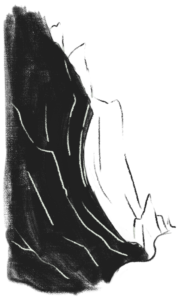
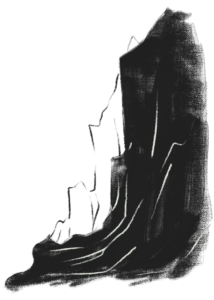
“It’s hard to distinguish what was pure physical exhaustion and what was clinical criteria for depression,” he says. “At the time … I hadn’t been formally diagnosed. I was grinding and experiencing this, but that was one of the first tipping points that ‘this is not normal.”
‘Not normal’ looks different for everyone. For Hill, he felt paralyzed and far from the people in his life who were trying to figure out how to help him.
“I just remember feeling so detached from anything of meaning, joy, and purpose that I had no want to be around people,” Hill says. “Even to wake up and eat, to be honest … [I] felt paralyzed and in mourning. I didn’t know what it was.”
“I love my family deeply, I love my friends – I have amazing, beautiful people in my life – and just not even wanting to see them and be around them or even care. It was so lonely and isolating in a disease that further isolates you more.
“I’m grateful that I haven’t been back in those spaces in a long time, because it’s hard to get the sense you can crawl out of them when you’re in the midst of it.”
For Hill, there were different stages and degrees of opening up and finding a way out of the darkness. The path wasn’t linear, of course. After giving up alcohol, he had relapses when working on fellowships away from his family in Indiana.
It was so lonely and isolating in a disease that further isolates you more.
In 2021, he brought up a decade passing since he first sought alcohol recovery. A regular therapist—a professional he encourages all doctors to have in their lives—has been a constant over that time. The publication of his acclaimed mental health paper in the New England Journal of Medicine was a big moment in 2017, as was finally sharing his journey for the first time publicly to his Riley colleagues the year before.
“That was my point of broad disclosure where I didn’t feel ashamed of it anymore, and actually felt empowered,” he says.
“The life that I’m living now and what has happened in the past has brought me to where I am today, and what a gift and blessing that is. Hopefully, maybe, I can help use that to reach out or connect with somebody else who is struggling.”
The way forward
If there is anything as present at med school as the mental health struggles, it is the vast stigma that surrounds it. Grind culture is a central element of the medical education experience with students often expected to push themselves to their limits and stay quiet about it.
“[There is] still this institutional stigmatization, this self-stigmatization to view mental health and addiction conditions still as a moral failing, or lesser and not equal to physical health conditions that we have to start teaching in a whole new way,” Hill says.
Though capable future physicians like their classmates, those med students who do reach breaking point can often be penalized for their struggles.
Mental health or substance abuse issues will be monitored by state medical licensure boards that turn a blind eye to physical ailments like anemia or hypertension, further stigmatizing their conditions. The end result sees both incoming and current doctors less willing to share how much they are struggling.
“Right now, we have a culture that says if you take more than 30 days away from your medical training you have to disclose it to your jobs, future employers, medical licensing, and credentialing,” he says.
“How messed up is that? That even if you have the self-awareness, the resources—which is also a huge problem—to take a step back and say ‘I need to focus on myself, and my health because it’s important,’ our system is designed to punish that individual and put a flag on their chart that they didn’t ‘complete on time’ or they took too much time away. That is the level of malignancy that exists in our culture that we really have to root out.”
Some schools are trying to find their own solution. The University of New Mexico School of Medicine has developed its own ‘multi-level’ approach aimed at making it normal for students to ask about mental health, which sees families of incoming students fully informed about the struggles their loved ones are about to deal with. Mental health training sessions for preclinical students have been instituted at the end of each semester, while low cost counseling is available during the clinical years. New Zealand medical schools have created ‘well-being curriculums’ to keep tabs on their students.
“There might be advantages in viewing this issue not just as a risk to be managed or a problem to be solved, but as a clear message that things need to change in the profession,” the authors of a 2018 study wrote.
“As well as being centers of teaching and learning, medical programs are spheres of influence. They are places where students develop their strategies, attitudes, and thinking and have multiple opportunities to engage, inspire, and role model a new way of being, both in self-care and in professional behaviors.”
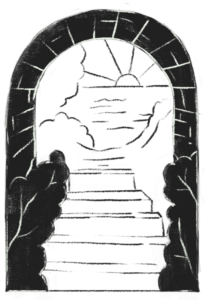
A few years after his broken leg, Hill watched his beloved Butler University Bulldogs nearly beat Duke in the iconic 2010 NCAA Championship Game. Though they didn’t win the big one, the tiny Indiana school’s story is already ranked amongst the great underdog stories in college hoops.
At the time, Hill was still deep in those woods. He’s on the other side now and wants to tell those who are in it themselves that you can not only get through it, but you can be a better doctor as a result of the experience.
“The lived experiences that you go through don’t make you flawed or weaker, they actually be used as fuel … to be compassionate, understanding and empathetic and come from a place of genuine authenticity to connect with people who are sometimes going through some of the worst moments in their lives, on the other side of the treatment table,” he says.
“How human is that? To use your own humanity to reach across that divide and make a difference in somebody else’s life.”
Photo credit (title image): IU Health
If you or someone you know is struggling with suicidal thoughts, call or text the 988 Suicide & Crisis Lifeline at 988.


